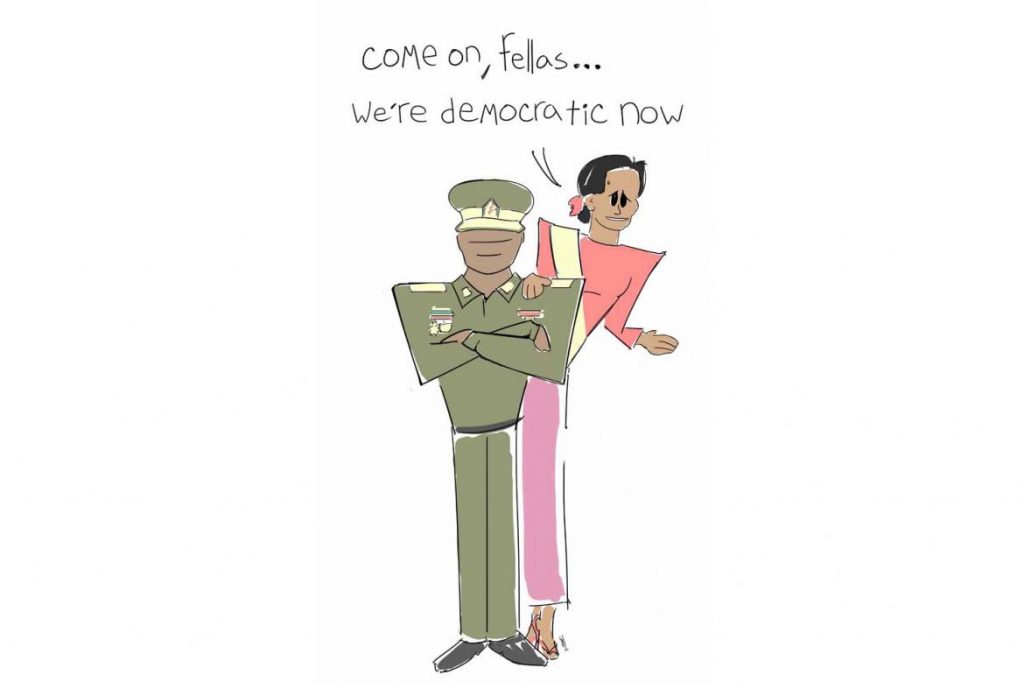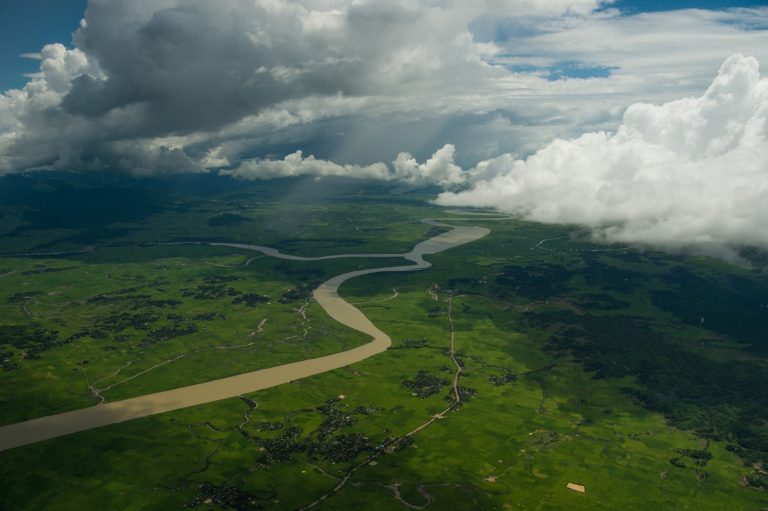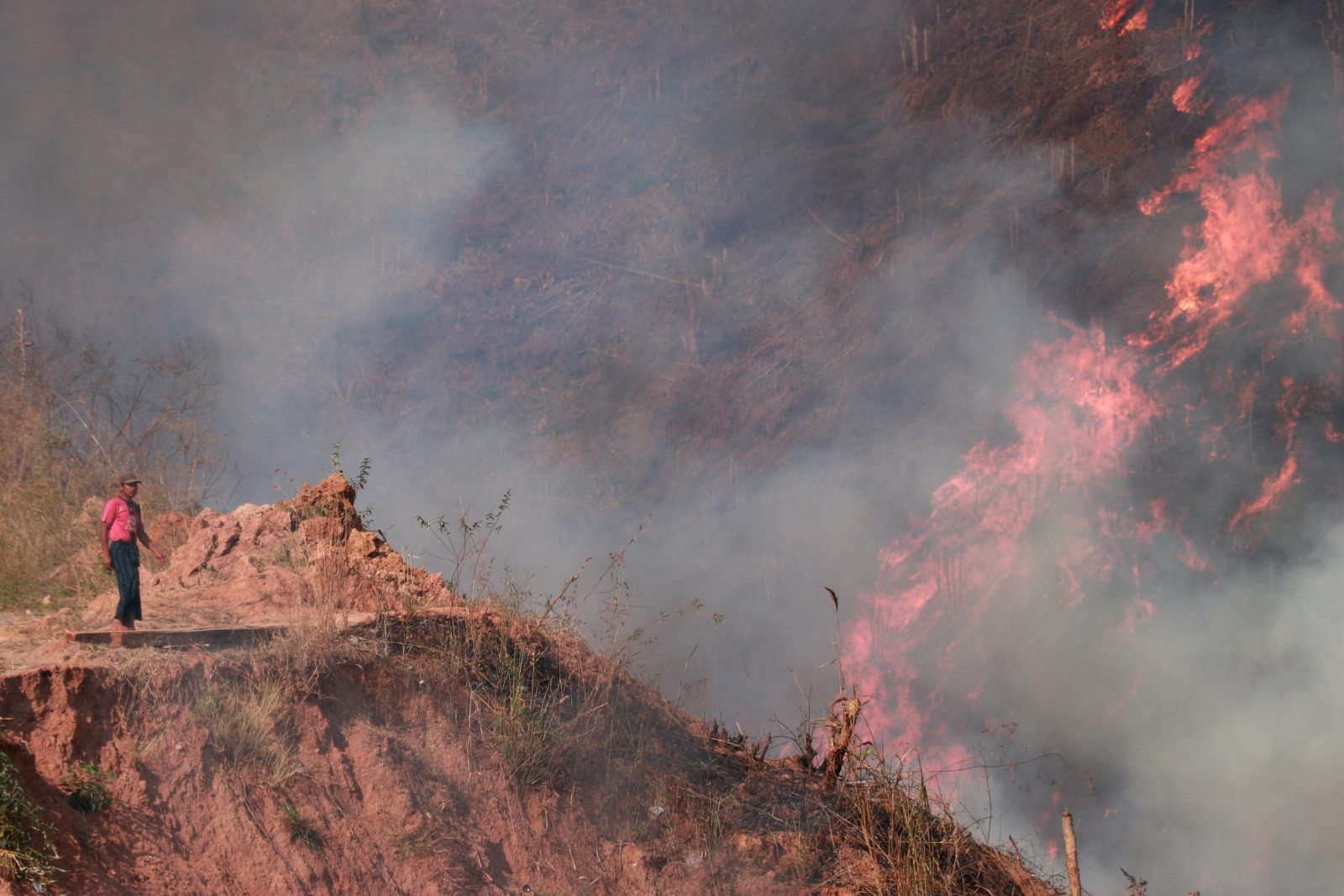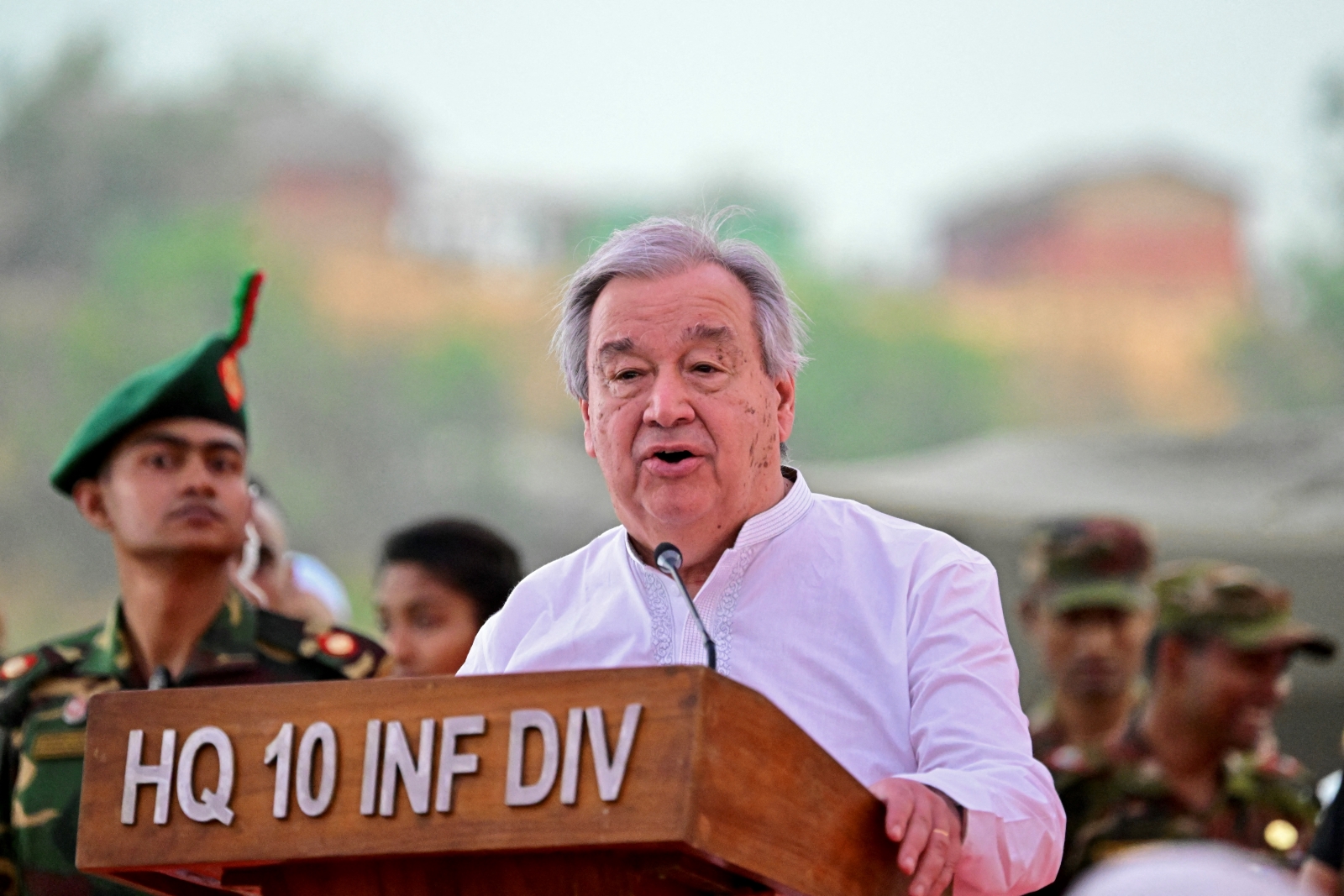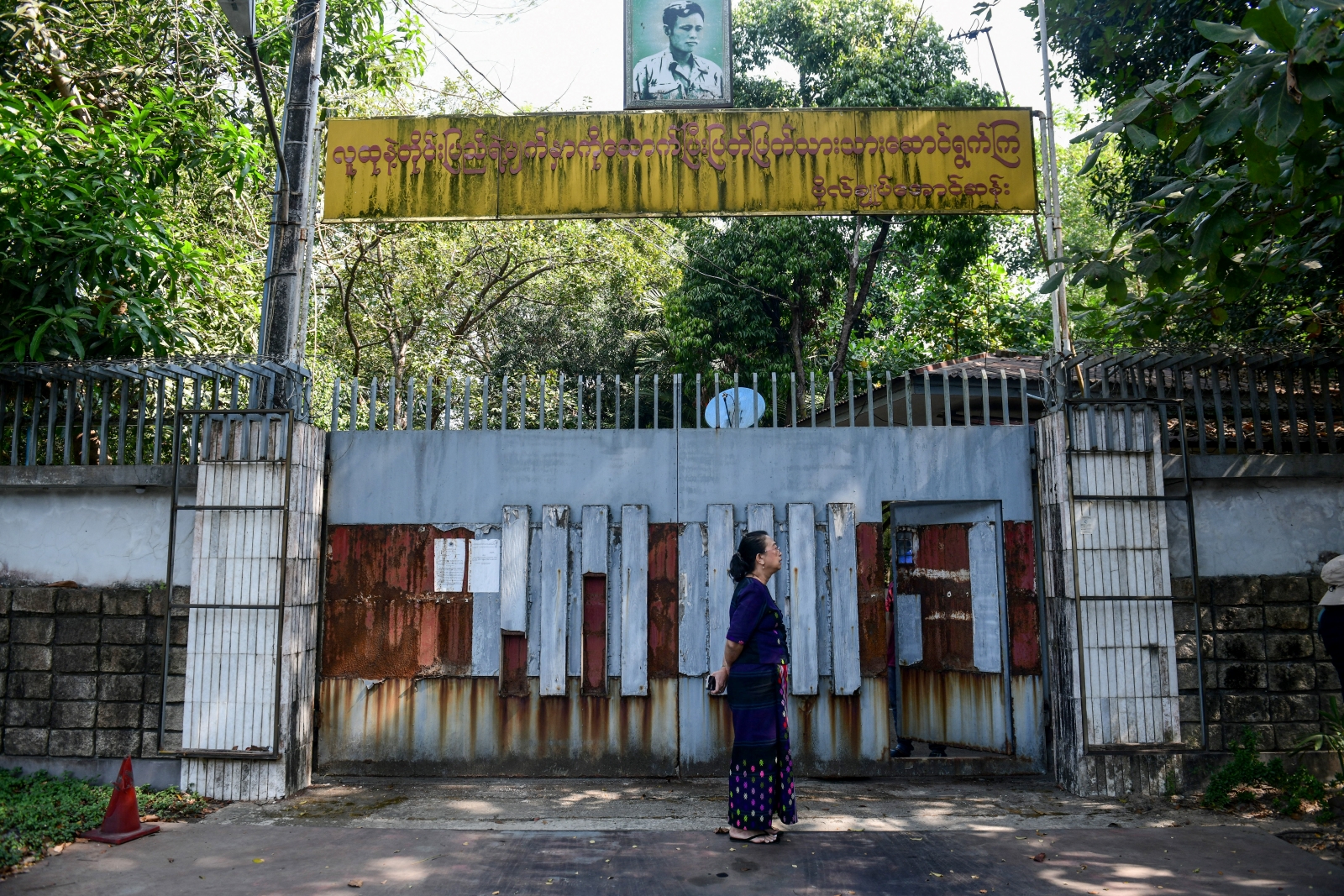There is a way for the State Counsellor to end the impasse that has led to yet more armed clashes in Myanmar’s north.
IF Daw Aung San Suu Kyi and the National League for Democracy thought they would have an easy time steering the peace process toward political dialogue, the past few weeks will no doubt have disabused them of that notion.
The launch of a series of attacks in northern Shan State on November 20 by several ethnic armed groups marks the lowest point in the quest for peace since the NLD government took office. In a joint statement, the four armed groups blamed the Tatmadaw, saying the offensive was “inevitable” given recent military pressure on their forces.
These developments have cast serious doubts over the next 21st Century Panglong Union Peace Conference, which is scheduled for February. The government and military have made clear that ethnic armed groups must sign the Nationwide Ceasefire Agreement to participate. The prospect of non-signatories inking the agreement appears remote, at least in the short term.
The government has bet big on the peace process. It has taken its eye off other priorities, most notably the economy. This is a high-risk strategy – one dependent on being able to deliver results.
So far, there has been precious little of that. Yes, the first Panglong conference managed to bring representatives from a wide range of groups together – a not insignificant achievement. But by the time the second conference is held, the NLD will have been in office for nearly a year. It needs to begin showing some real progress on the issue it said would be its top priority.
Support more independent journalism like this. Sign up to be a Frontier member.
The cracks were beginning to appear before the November 20 offensive. A sense of frustration has pervaded the State Counsellor’s recent public remarks on the peace process. She has warned ethnic armed groups not to stall for time, and publicly questioned why they won’t just sign the NCA and get down to negotiations.
These warnings have coincided with increased Tatmadaw aggression. Whether this is a deliberate strategy or coincidence, it’s unlikely to prove effective. History shows that military pressure will not push the Kachin Independence Organisation to the negotiating table. The KIO controls the United Nationalities Federal Council bloc, so others are unlikely to sign up without the Kachin.
The government’s handling of the peace process has been questionable. It has not worked hard enough to build trust, thinking that ethnic armed groups would simply fall into line because of its mandate and pro-democracy credentials. The NLD seems to have forgotten that, in the eyes of the ethnic armed groups at least, it is still a Bamar government. So far, it has done little to change that perception.
Its close working relationship with the Tatmadaw has generated suspicion too. Those familiar with the peace process say that the military is increasingly calling the shots. This is dangerous, both because the armed groups don’t trust the Tatmadaw and the military’s objectives for the peace process are opaque. Regardless, the Tatmadaw seems to be filling a vacuum left by the NLD administration, which appears to be out of its depth.
Well, here’s an idea.
The three groups that joined the Kachin Independence Army in the November 20 offensive – the Myanmar National Democratic Alliance Army, Ta’ang National Liberation Army and Arakan Army – have been blocked from the peace process at the Tatmadaw’s behest. This is the ostensible reason that the KIA, and by extension the other members of the UNFC, won’t sign the NCA (the United Wa State Army and National Democratic Alliance Army are a separate case).
So invite them to sign the nationwide ceasefire. Get on the front foot, and put the pressure back on them to sign.
We are at an impasse that needs to be broken through decisive action, a game-changing manoeuvre. Unless the government shows it can change tack, it risks losing even more credibility come February.
This editorial was originally published in the December 1 edition of Frontier.


